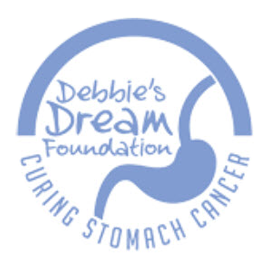Posts by Andrea Eidelman
June 21, 2018 – TAS-102 Prolongs Survival in Phase III Gastric Cancer Study
According to a recent study, TAS-102 (trifluridine/tipiracil; Lonsurf) provided a 31% reduction in the risk of death for patients with heavily pretreated metastatic or advanced gastric cancer that received the drug compared to patients who received a placebo. The median overall survival time was 5.7 months for patients who received TAS-102 compared with 3.6 months…
Read MoreJune 18, 2018 – Adjuvant Chemotherapy Advances Boost Outcomes in GI Malignancies
In gastric cancer, results from a FLOT4 clinical trial suggest that the FLOT (fluorouracil/leucovorin, oxaliplatin, and docetaxel [Taxotere]) regimen should be the primary adjuvant treatment in gastric cancer over epirubicin/cisplatin/fluorouracil (ECF) or epirubicin/cisplatin/oxaliplatin (ECX). The trial showed that overall survival was longer for patients assigned to FLOT compared with ECF/ ECX (50 vs 35 months)…
Read MoreJune 16, 2018 – Endoscopic Surveillance Detects Early Gastric Cancer
A study found that endoscopic surveillance can detect gastric cancer at an early curable stage. 279 patients (previous diagnosed with either atrophic gastritis, intestinal metaplasia, or dysplasia) underwent at least one surveillance endoscopy. 84% of the patients were Caucasian. The first surveillance endoscopy was conducted after a mean interval of 35 months with a mean…
Read MoreJune 12, 2018 – Risk of Diabetes May Increase After Cancer Diagnosis
Diabetes is the main cause of cancer-unrelated mortality among cancer survivors. Numerous studies have suggested that diabetes increases risk for developing cancer. A recent South Korean study found that having cancer itself also increases risk for developing diabetes. Researchers followed 494,189 patients between ages 20 and 70 without diabetes and cancer for a median of…
Read MoreJune 12, 2018 – Futuristic gene-editing technology may cause cancer
Two studies have suggested that successful gene editing with CRISPR Cas9 (to cure genetic diseases) may be associated with an increased risk of developing cancer. This is because the edit may indicate that the modified cell lacks the cancer-suppressing protein, p53. P53 acts as the body’s cellular “first aid” kit and also causes some CRISPR…
Read MoreJune 07, 2018 – Helicobacter pylori and Prevention of Gastric Cancer
This article consists of two letters to the editor regarding a clinical trial in which the relationship between Helicobacter Pylori eradication and rate of new tumor occurrences unrelated to gastric cancer (metachronous gastric cancer) and grade of corpus atrophy was examined. In a potential trial conducted in South Korea, early gastric cancer patients who received…
Read MoreJune 3, 2018 – Increase in lifestyle-related cancers over past decade spotlights need for prevention
A recently published study found that cases of lifestyle-related cancers increased universally, while cases of cancers from infectious causes—including stomach cancers – decreased between 2006 and 2016. The 2016 rankings for the best and worst countries for stomach cancer according to number of new cases showed South Korea as the worst country with 44.5 new…
Read MoreMay 29, 2018 – Gastric Cancer Screening in High-Risk Groups Cost-Effective
A new modeling study suggests that gastric-cancer screening could be cost-effective in high-risk racial and ethnic groups in the U.S. When diagnosed at an early stage, patients with gastric adenocarcinoma (GA) have a five-year survival rate of 95% to 99%. But, if detected later, the survival rate drops to less than 30%. Thus, it is…
Read MoreMay 23, 2018 – How gut microbes are joining the fight against cancer
Research has shown that certain gut bacteria appear to boost people’s response to cancer treatment. Some microbes can be adversary and activate inflammatory responses that disrupt the body’s protection mechanisms or make cells resistant to drugs, promoting cancer survival. Other gut bacteria, however, can help defend against tumors. Studies have shown that some cancer treatments…
Read MoreMay 14, 2018- Medical Marijuana: Efficacy, Toxicity, and Legality
Medical marijuana can exist in a variety of formulations such as dried flowers, resins, extracts and oils. It’s legalization and use for medical purposes is still a developing issue and the perspectives of many health care providers is also following the same path. Medical marijuana can be used to ease chronic pain, chemotherapy-induced nausea and…
Read More